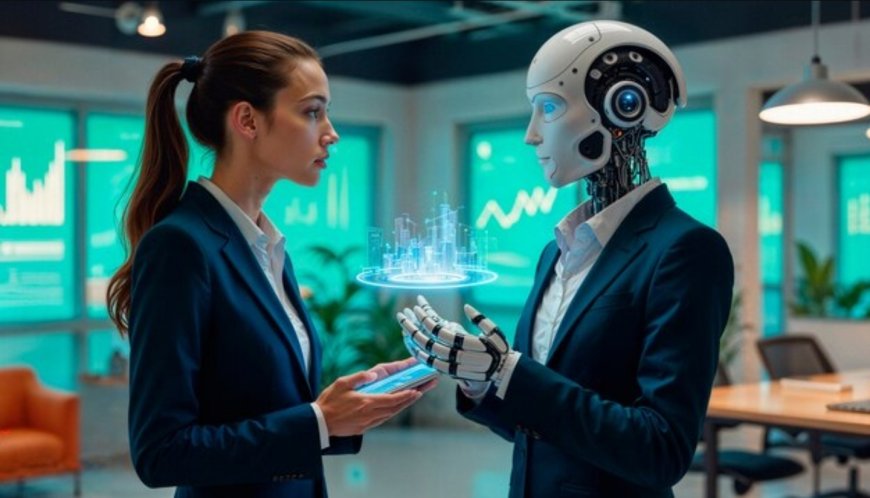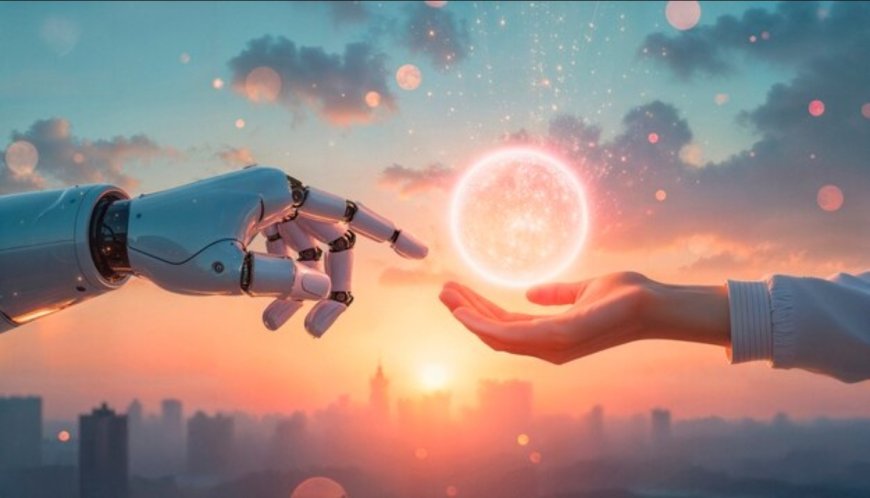The Future of Artificial Intelligence in 2025 and What Lies Ahead
Explore AI's future in 2025 discover upcoming trends advancements and the potential impact of AI on industries healthcare and everyday life.

Artificial Intelligence (AI) has evolved from an abstract concept to a transformative force that is reshaping industries and daily life. With advancements in machine learning natural language processing and robotics AI is poised to revolutionize nearly every aspect of society by 2025. However while its benefits are undeniable AI also raises significant challenges from job displacement to ethical concerns. At pakrepublic.com we delve into the exciting future of AI examining how this technology will impact sectors like healthcare transportation and business operations. Let’s explore the major developments and trends that are expected to shape the future of AI in the next few years.
1. AI Powered Automation Shaping the Workforce
By 2025 AI-powered automation will fundamentally change industries like manufacturing logistics and customer service. Automation will not just replace mundane tasks but will also increase efficiency and precision across various sectors.
Key Developments in AI Automation
- Manufacturing AI driven robots will streamline production lines making them more efficient. These robots will work alongside human employees assisting in tasks that require precision such as assembly or quality checks.
- Supply Chain Optimization AI will help businesses predict supply chain disruptions enabling smarter inventory management and real time logistics solutions.
- Customer Service Chatbots and virtual assistants will become more advanced using AI to handle customer inquiries and personalize experiences. Expect 24/7 customer support systems that feel increasingly human like.
The Impact on Employment
While AI will boost productivity there is concern about job displacement particularly in sectors involving routine tasks. However this transformation also presents an opportunity to upskill workers and transition them into higher value roles in tech and AI driven industries.
- Job Creation New roles will emerge in AI maintenance, machine learning, and data analysis.
- Reskilling Initiatives Governments and organizations will need to invest in reskilling programs to ensure a smooth transition for workers affected by automation.

2. AI in Healthcare Revolutionizing Diagnostics and Treatment
The healthcare sector stands to benefit enormously from AI advancements by 2025. AI’s ability to process vast amounts of medical data quickly and accurately will enhance diagnostics, treatment planning, and patient care.
AI-Powered Diagnostics
- Early Disease Detection AI algorithms will assist doctors in diagnosing diseases such as cancer heart disease and neurological disorders at earlier more treatable stages.
- Medical Imaging AI will be used to analyze radiology images identifying issues such as tumors or fractures with remarkable accuracy.
Personalized Treatment Plans
AI will leverage data from medical records genetic information and real time health data to create personalized treatment plans tailored to individual patients. This personalized approach will help ensure the most effective treatments reducing side effects and improving outcomes.
- Precision Medicine AI systems will analyze genetic data to provide insights into the best treatment options based on a patient’s unique genetic makeup.
- AI in Drug Discovery AI models will speed up the process of drug development by analyzing potential compounds and predicting their effectiveness significantly cutting down research time.
3. Autonomous Vehicles The Road to Full Autonomy
Autonomous vehicles (AVs) are expected to revolutionize the transportation sector by 2025. From self driving cars to drones AI will drive innovations in mobility making travel safer faster and more efficient.
Self-Driving Cars
- Increased Safety AI will improve the safety of self driving cars by reducing human error. These vehicles will be equipped with advanced sensors and machine learning algorithms to detect obstacles and make decisions in real time.
- Efficient Traffic Management AI will optimize traffic flow reducing congestion and ensuring smoother travel experiences by adapting to changing road conditions and real time data from other vehicles.
Delivery Drones
AI-powered drones will change logistics by allowing goods to be delivered faster and more efficiently. These drones will use AI to navigate through complex environments avoiding obstacles and delivering packages in urban and rural areas alike.
- AI-Optimized Routes Drones will calculate the fastest and most efficient routes based on real time data ensuring quicker deliveries.
- Reduced Human Labor Drones will reduce the reliance on human drivers and delivery personnel lowering operational costs and increasing delivery speed.
4. AI and Ethics Addressing the Challenges
With the rapid growth of AI ethical considerations are becoming increasingly important. By 2025 we will likely see greater emphasis on the responsible use of AI focusing on data privacy security and fairness.
Ethical Concerns in AI Development
- Job Displacement Automation powered by AI may lead to job loss in certain industries. The challenge lies in finding ways to reskill workers and ensure they can transition into new roles.
- Data Privacy As AI systems process massive amounts of personal data protecting user privacy will be crucial. Stricter regulations around data protection will likely emerge as AI becomes more ingrained in everyday life.
- Bias in AI Systems AI models can inherit biases present in the data they are trained on. Ensuring fairness in AI decision making will be vital to avoid discrimination in fields like hiring law enforcement and lending.
Mitigating AI Risks
- Transparent AI Systems By 2025 transparency will be a key focus for AI developers with many companies prioritizing explainability and accountability in their algorithms.
- Regulatory Measures Governments and organizations will likely implement stronger regulations and guidelines for AI development ensuring that AI technologies benefit society as a whole without causing harm.
Also Read This:
Bank Disputes and Account Blocks in pakiatan
FAQs
1. What is the future of AI by 2025?
By 2025 AI will revolutionize industries such as healthcare transportation and customer service. We can expect widespread adoption of autonomous vehicles AI-powered medical diagnostics and AI-driven automation.
2. How will AI affect employment?
AI will automate many routine tasks potentially displacing jobs but it will also create new opportunities in fields like AI development data science and machine learning.
3. Are autonomous vehicles safe?
Autonomous vehicles will use advanced AI systems to reduce human error and increase safety. By 2025 these vehicles will be more reliable with real time decision making capabilities that improve driving conditions.
4. How will AI improve healthcare by 2025?
AI will enhance healthcare by improving diagnostics personalizing treatment plans and accelerating drug discovery ultimately leading to better patient outcomes.
5. What are the ethical concerns surrounding AI?
Ethical concerns in AI include job displacement data privacy issues and algorithmic biases. Addressing these concerns will require transparency fairness and regulation in AI development.
Conclusion
The future of artificial intelligence in 2025 holds immense potential. From transforming industries through automation and enhancing healthcare to reshaping the way we travel AI is set to bring about radical change. However, with these advancements come significant challenges especially in the areas of ethics and job displacement. To maximize the benefits of AI while minimizing its risks, we must ensure that AI development is responsible transparent and equitable. As we look ahead to 2025 the future of AI is bright but it will require careful planning and collaboration to ensure it serves the best interests of society.

















































